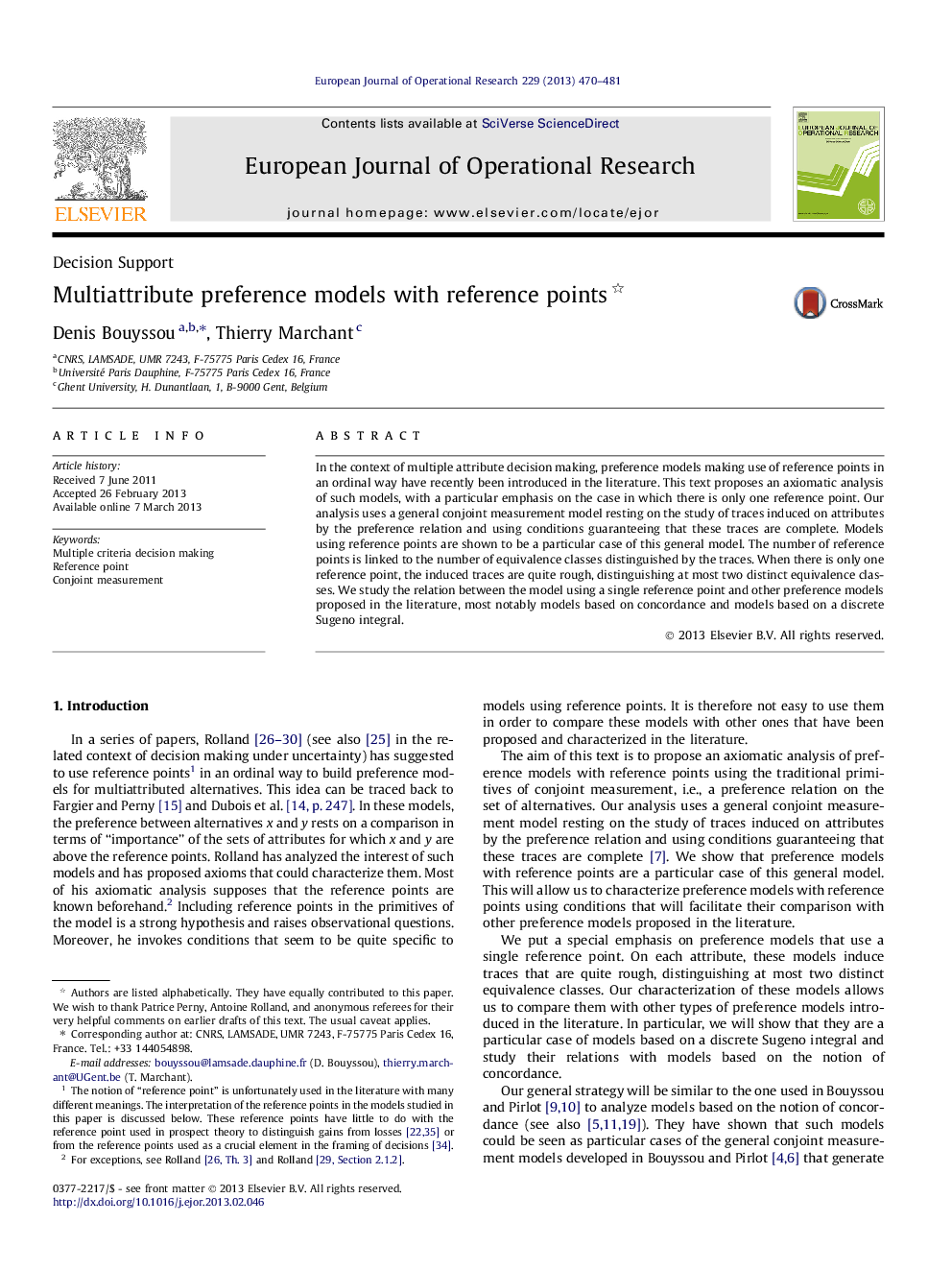| Article ID | Journal | Published Year | Pages | File Type |
|---|---|---|---|---|
| 476733 | European Journal of Operational Research | 2013 | 12 Pages |
In the context of multiple attribute decision making, preference models making use of reference points in an ordinal way have recently been introduced in the literature. This text proposes an axiomatic analysis of such models, with a particular emphasis on the case in which there is only one reference point. Our analysis uses a general conjoint measurement model resting on the study of traces induced on attributes by the preference relation and using conditions guaranteeing that these traces are complete. Models using reference points are shown to be a particular case of this general model. The number of reference points is linked to the number of equivalence classes distinguished by the traces. When there is only one reference point, the induced traces are quite rough, distinguishing at most two distinct equivalence classes. We study the relation between the model using a single reference point and other preference models proposed in the literature, most notably models based on concordance and models based on a discrete Sugeno integral.
•We propose an axiomatic analysis of models using reference points in MCDM.•These models prove to be a particular case of a general conjoint measurement model.•Relations between these models and other preference models are studied.•An elicitation procedure of the parameters of these models is proposed.
